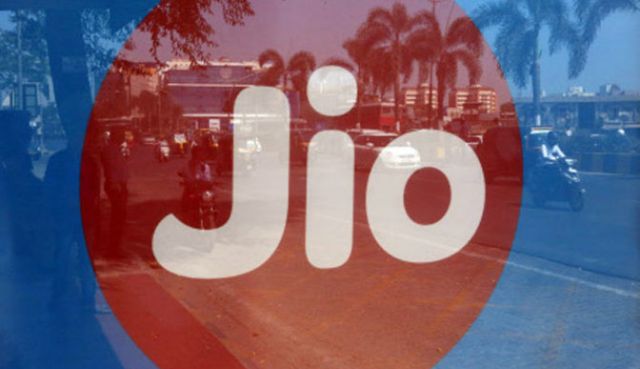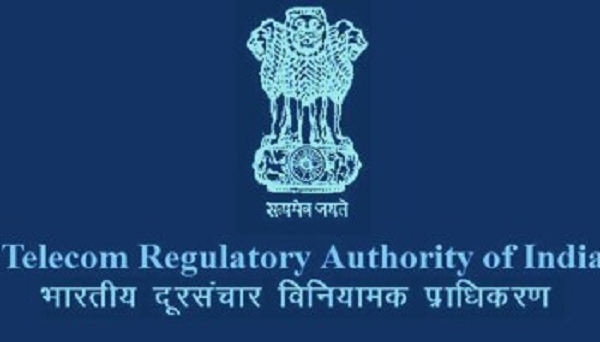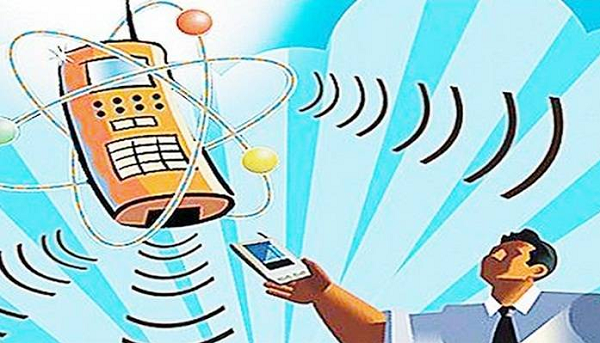
by Editor | May 25, 2021 | Corporate, Corporate Governance, Markets, Networking, Technology
 By Nishant Arora,
By Nishant Arora,
New Delhi : Telecom Regulatory Authority of India (TRAI) Chairman R.S. Sharmas open Aadhaar challenge to critics and hackers is nothing but a case of “misplaced enthusiasm” which dilutes the debate on securing the Aadhaar eco-system, emphasise cyber law experts.
Sharma, who made his 12-digit Aadhaar number open on July 28 and created a tweetstorm — not as a government servant but “as a normal citizen of India” — can set a dangerous precedent for millions of Indians who are still not aware what privacy is all about.
“Throwing such a challenge only shows misplaced enthusiasm. He is treading a dangerous path which can be detrimental in days to come as his personal and bank details are now out in the open,” Pavan Duggal, one of the leading cyber law experts in the country, told IANS.
What the TRAI Chairman has perhaps forgotten is that the central data repository at the Unique Identification Authority of India (UIDAI) may be secure, but several third-party vendors are now increasingly accepting Aadhaar as a key document — and that opens it up for misuse, especially given the weak cyber security laws in the country.
“Several FIRs have been lodged against Aadhaar misuse across the country. People’s confidence in Aadhaar is slowly being eroded and, at this juncture, rather than working extensively on securing Aadhaar, we see a top government official posting his Aadhaar number on Twitter,” Duggal lamented.
Ethical hackers have exposed at least 14 personal details of the TRAI chairman since he revealed his Aadhaar number — including mobile numbers, home address, date of birth (DoB), PAN number and voter ID, among others.
Ethical hackers can’t go beyond this as creating financial break-ins will land them in legal trouble.
“By the way, were you able to cause any harm to me, because now you know my Aadhaar number?” Sharma tweeted to a French security expert, who goes by the nickname Elliot Alderson and uses the twitter handle @fs0c131y, as his personal details began flying all over Twitter.
Alderson replied: “If your phone numbers, address, DoB, bank accounts and others personal details are easily found on the Internet you have no #privacy. End of the story.”
According to Duggal, personal privacy breach begins with the phone number and it is a tragedy that most Indians – unlike Europeans or Americans – are still not aware what exactly constitutes privacy.
“Your phone number (becoming public knowledge) is the first hint that your private space has been breached. Would you wait for hackers to clean up your bank accounts?” asked Duggal.
As part of the European Union’s General Data Protection Regulation (GDPR) that came into force from May 25, EU citizens may, at any point, object to an organisation’s handling of their personal data.
The regulation specifically names “direct marketing and profiling” as personal data uses to which individuals may object to.
The Justice B.N. Srikrishna Committee on data protection in India has also suggested amendments to the Aadhaar Act to provide for imposition of penalties on data fiduciaries and compensations to data principals for violations of the data protection law.
The 213-page report suggests amendments to the Aadhaar Act from a data protection perspective.
Jared Cohen, a former US State Department official and an expert on social media and cyber-crime issues, has also stressed there are serious concerns about the collection of biometric data for Aadhaar cards in India and these must be allayed.
“I don’t want to meddle in India’s politics. But there are concerns (about collection of personal details for Aadhaar card),” Cohen told an IANS correspondent on the sidelines of the third annual BCTECH Summit at Vancouver, Canada, in May.
Cohen, currently the CEO and Founder of Jigsaw, a Google arm started to tackle threats to online security, conceded there are arguments on the merits of the Aadhaar system but there are also concerns that must be addressed.
According to Duggal, “Not just cosmetic changes, there is an urgent need for addressing newly-emerging legal and cyber-security challenges concerning the Aadhaar ecosystem on an urgent basis.”
“There is a need for a more comprehensive legal framework to protect and preserve data and the privacy of individual Aadhaar account holders in particular, and the Aadhaar ecosystem stakeholders in general,” he noted.
(Nishant Arora can be contacted at nishant.a@ians.in)
—IANS

by Editor | May 25, 2021 | Business, Large Enterprise
 New Delhi : Reliance Jio on Wednesday said it is committed to implementing the most efficient telecommunications network in India and passing on the benefits of technology to Indian customers, adding that implementation of the Bill & Keep regime by the Telecom Regulatory Authority of India (TRAI) will help in making services more affordable for Indian customers.
New Delhi : Reliance Jio on Wednesday said it is committed to implementing the most efficient telecommunications network in India and passing on the benefits of technology to Indian customers, adding that implementation of the Bill & Keep regime by the Telecom Regulatory Authority of India (TRAI) will help in making services more affordable for Indian customers.
“It should have been implemented in 2014 as envisaged in the 2011 Report submitted by TRAI to the Hon’ble Supreme Court and will be six years too late,” the Jio statement said.
Jio offers free voice services to all its customers backed by a superior technology and has helped make India the world’s largest mobile data consuming country within one year of commencement of services.
The TRAI on Tuesday slashed mobile termination charges to 6 paise from 14 paise effective from October 1, 2017. The regulator will phase out IUC regime from January 1, 2020.
The TRAI said: “Further, the cost of termination of calls will drastically come down over a period of two years and very small residual value, if any, can be absorbed by the TSPs in their tariff offerings. As a result, the Authority prescribes a Bill and Keep regime for the wireless to wireless calls effective from January 1, 2020.”
Jio further said: “Jio has always offered free voice services to its customers. There is no question of any advantage from the new IUC regulation to Jio as it has already passed on all the benefits to customers. We deny any benefits to Jio. At a time when the world is moving towards IP-based technologies, cost of voice has come down to a fraction of a paisa and the customers should enjoy this advantage.”
Jio added: “The Delhi High Court earlier today dismissed the petition of one of the incumbent operators while pronouncing that the appeal fails to show any violation of Section 11 (4) of the TRAI Act, 1997 (principles of transparency).
“It is appalling that the incumbent operators have still gone ahead and made untrue and baseless allegations against the process for determination of IUC or the regulator. The incumbent operators have a history of opposing all the IUC regulations over the last eight years, but have not been successful in thwarting passing of the benefits of lower IUC to customers.”
Jio said the high cost IUC regime “thus far has caused financial stress for the smaller and new operators.”
Earlier in the day, Reliance Communications welcomed the Indian telecom regulator’s decision to slash interconnection usage charges (IUC) to 6 paise.
“We welcome the reduction in IUC to 6 paise by TRAI. We also welcome the Bill & Keep model, to be effective from January 2020. The IUC cut has already been delayed by three years. With voice calling becoming free, TRAI’s move will provide a level playing field,” Reliance Communications said in a statement.
—IANS

by Editor | May 25, 2021 | Business, Corporate, Corporate Buzz, Large Enterprise
 New Delhi : Indian telecom regulator TRAI on Tuesday came out with a regulation cutting call termination charges from mobile to mobile by over half to 6 paise per minute effective from October 1. The measure drew stiff opposition from a majority of telecom operators who plan to seek legal redressal.
New Delhi : Indian telecom regulator TRAI on Tuesday came out with a regulation cutting call termination charges from mobile to mobile by over half to 6 paise per minute effective from October 1. The measure drew stiff opposition from a majority of telecom operators who plan to seek legal redressal.
The sector regulator also plans to phase out Interconnection Usage Charges (IUC) by January 1, 2020.
“For mobile to mobile, termination charge has been reduced from 14 paise per minute to 6 paise per minute with effect from October 1, 2017,” the Telecom Regulatory Authority of India (TRAI) said in a statement.
“Such a revision in the mobile termination charge is in line with the international trends.”
Domestic termination charges are the charges payable by a telecom service provider (TSP) whose subscriber originates the call, to the TSP in whose network the call terminates.
TRAI further added: “From January 1, 2020 onwards the termination charge for all types of domestic calls shall be zero.”
The TRAI paper said: “The elimination of IUC will result in direct benefit to customers through lower tariffs.”
It said for other types of calls (such as wire-line to mobile, wire-line to wire-line and wire-line to mobile), the termination charge would continue to remain zero.
The TRAI said: “Further, the cost of termination of calls will drastically come down over a period of two years and very small residual value, if any, can be absorbed by the TSPs in their tariff offerings. As a result, the Authority prescribes a Bill and Keep regime for the wireless to wireless calls effective from the January 1, 2020.”
The prevailing Interconnection Usage Charges (IUC) Regulation was notified on February 23, 2015 and came into effect from March 1, 2015.
This regulation of TRAI will give a big jolt to the incumbent TSPs like Bharti Airtel, Vodafone India and Idea Cellular who said a lesser IUC regime will be detrimental for the industry. However, new entrant in the industry Reliance Jio has always demanded zero termination charges.
Reacting to TRAI decision, Cellular Operators’ Association of India’s Director General Rajan S. Mathews told IANS: “Clearly this is a disastrous tariff order. We have indicated earlier that the regulator has to be transparent about how it is arriving at a number. This massive reduction is disastrous for the financial health of the sector. Majority of our members will look for legal redressal.”
He added that customers will not be benefitted from this.
Earlier Vodafone Group CEO Vittorio Colao had urged the Indian government not to reduce mobile termination charges further.
In a letter dated August 22, Colao said: “On mobile termination charges, we are seriously alarmed to see reports that the Regulator is considering a reduction in MTC at a time when the industry is facing such immense hardships. Any reduction in MTC risks large scale site shut-down of already unprofitable sites in rural India and which would greatly diminish the population coverage of mobile telephony.”
Interconnection allows subscribers, services and networks of one service provider to be accessed by subscribers, services and networks of the other service providers. If networks are efficiently interconnected, subscribers of one network are able to seamlessly communicate with those of another network or access the services offered by other networks.
The TRAI said it would keep a close watch on the developments in the sector particularly with respect to the adoption of new technologies and their impact on termination costs.
“The Authority, if it deems it necessary, may revisit the aforementioned scheme for termination charge applicable on wireless to wires calls after one year from the date of implementation of the regulation”,” it added.
According to industry sources, if the IUC is slashed by 6 paise per minute, on an annualized basis Reliance Jio will make a savings of Rs 5,000 crore. Airtel will make a loss of Rs 2,000 crore, Vodafone Rs 1,500 crore, Idea Rs 1,200 crore, while Reliance Communications and Aircel will benefit by Rs 250 crore.
If the IUC is completely done away with then Reliance Jio will make additional savings of over Rs 4,000 crore. Airtel will make a loss of Rs 1,500 crore, Vodafone and Idea (merged entity) will make loss of around Rs 2,200 crore. However, Reliance Communications and Aircel (merged entity) will benefit by Rs 350 crore.
—IANS

by Editor | May 25, 2021 | Business, News
 New Delhi:(IANS) Most of the telecom service providers, except Airtel 2G and 3G and Vodafone 2G, in the Mumbai circle have failed to meet call drop rate benchmark of less than 2 per cent, said sector regulator TRAI in a statement on Tuesday after conducting a drive test.
New Delhi:(IANS) Most of the telecom service providers, except Airtel 2G and 3G and Vodafone 2G, in the Mumbai circle have failed to meet call drop rate benchmark of less than 2 per cent, said sector regulator TRAI in a statement on Tuesday after conducting a drive test.
IMRB International has carried out independent drive test for cellular mobile telephone service in Mumbai service area between May 10-13, the statement said.
“Most operators (in Mumbai circle), excepting Airtel 2G/3G and Vodafone 2G, are not meeting the under 2 per cent call drop rate benchmark,” said the Telecom Regulatory Authority of India (TRAI) statement.
It also stated that most telcos in Mumbai met the call set-up success rate benchmark of over 95 per cent, except MTNL 2G and 3G and Reliance Communications 2G.

by Editor | May 25, 2021 | Corporate, Corporate Governance
 New Delhi (IANS) The Supreme Court is likely to give on Wednesday its judgment on plea by associations of telecom operators challenging sector regulator TRAI’s October 16, 2015 notification obligating service providers to compensate consumers for dropped calls, at Rs.one each for the first three calls daily.
New Delhi (IANS) The Supreme Court is likely to give on Wednesday its judgment on plea by associations of telecom operators challenging sector regulator TRAI’s October 16, 2015 notification obligating service providers to compensate consumers for dropped calls, at Rs.one each for the first three calls daily.
The verdict by a bench of Justice Kurian Joseph and Justice Rohinton Fali Nariman will be on the petitions by the Cellular Operators Association of India (COAI) and the Association of Unified Service Provider of India (USPAI) who have challenged the Delhi High Court’s February 29 order upholding the Telecom Regulatory Authority of India (TRAI) notification.
The judgment will be pronounced by Justice Nariman.
Telecom service providers (TSPs), in the course of the hearing, had contended that TRAI decision to saddle them with penalty for call drops was a “populist” measure to accommodate telecom consumers as these were happening for host of external consideration not attributable to them.
The associations had contended that under the terms and conditions of licence, it was only when call drops exceed a 2 percent ceiling that operators attract penalties, and none of the telecom service providers have breached the cap or penalised on this count.
However, TRAI had defended its decision to impose call drop penalty on the telecom service providers describing it as a “least invasive way to deal with the issue” and told the apex court that the service providers must enhance their investment in infrastructure as they were earning huge revenues.




